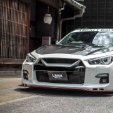Looking for new workshop!
Announcements
-
Similar Content
-
Latest Posts
-
I guess. The diff and the speedo are gearbox agnostic.
-
@GTSBoy sorry I still am unable to pm direct
-
So I'm.about rhe manual swap my 34gt sedan, I've already done a +T I'm just wanting to clarify that I'm not goin to need to do anything with a speed sensor on the box for the speedo to still operate as it is supplied a signal from the diff correct?
-
Welcome. As the old saying goes, there's no replacement for displacement(except boooooost!) The 3.7 v6 has a lot of capacity over the 2.5 straight 6. Add forced induction and will definitely add to the fun factor. But, probably not going to be a cheap exercise. I'm sure you will have a fun journey either way.
-


1.thumb.png.36afd656b26d55f5d425fc76e21561f2.png)


Recommended Posts
Create an account or sign in to comment
You need to be a member in order to leave a comment
Create an account
Sign up for a new account in our community. It's easy!
Register a new accountSign in
Already have an account? Sign in here.
Sign In Now